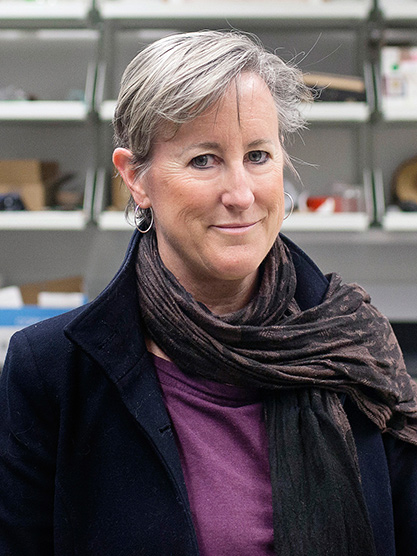Open letter from the Department of Anthropology
Open letter from the Department of Anthropology
 This has been a long and terrible couple of weeks in our nation’s history. Within the continuing threat of a global pandemic to which many of us have lost friends and family, we are also witnessing acts of extreme aggression, overt brutality, and murder affecting members of our national community. In other ways, however, these weeks are unusual only in their having focused a spotlight on the longstanding inequities that underlie the entirety of our national history.
This has been a long and terrible couple of weeks in our nation’s history. Within the continuing threat of a global pandemic to which many of us have lost friends and family, we are also witnessing acts of extreme aggression, overt brutality, and murder affecting members of our national community. In other ways, however, these weeks are unusual only in their having focused a spotlight on the longstanding inequities that underlie the entirety of our national history.
Our departmental mission statement notes that the department “serves our students and community by promoting and advancing a nuanced understanding of human origins, history, and diversity.” Part of this understanding must necessarily mean a willingness to engage with the ways the absence of nuance has always supported racism and other oppressive hierarchies, locally, nationally, and globally.
Our field has a complicated history. While we can point to many scholars who have fought to dismantle racialized, gendered, and other hierarchies, we also recognize the history of anthropology and its subfields in helping to construct and maintain narratives of difference and inferiority. As a department, we will continue our work to promote critical thinking and to provide and continually improve upon a curriculum that works to decolonize not only our own discipline, but also the broader society we live in.
We will heed the recent call by the American Anthropological Association to “participate in overturning the deeply entrenched institutional sources of race-based inequality that are barriers to a more just and sustainable world” (https://www.americananthro.org/StayInformed/NewsDetail.aspx?ItemNumber=25731, accessed 6/5/2020).
We concur, with the Society for American Archaeology, that “contextual understanding of power is necessary to overcome and heal from the problems we face today” and that we must “promote actively anti-racist practices…and to work toward meaningful changes” in our world, broadly speaking (https://www.saa.org/quick-nav/saa-media-room/saa-news/2020/06/02/saa-joins-the-national-call-for-comprehensive-justice, accessed 6/5/2020).
Recognizing the power of language to frame our understandings of the world and perpetuate racist attitudes, we will continue to engage critically with that language and deconstruct our dominant narratives.
And we strongly underscore the point made by the American Association of Physical Anthropologists that “race does not have roots in biology but in policies and practices of colonialism and oppression” (https://physanth.org/about/position-statements/open-letter-
our-community-response-police-brutality-against-african-americans-and-call-antiracist-action/, accessed 6/5/2020).
Yes, this has been a long and terrible couple of weeks in our nation’s history. At the same time, we are seeing more and more people begin to reflect on the consequences of our social structures. Let us use this moment to commit to thinking more deeply about the role of political, economic, and legal systems and cultural attitudes in maintaining structural racism and other forms of social inequity. We as a society cannot continue to be complicit in producing a world none of us wishes to claim.
The Department of Anthropology stands in solidarity with our students, colleagues, staff, community members, and all those who are struggling for justice, safety, and greater equity in our society. We are reaching out to the community to find ways to support one another and ensure that we as a nation grow toward a more equitable, sustainable future. And we pledge to use our positions—as educators, parents, community members, and learners—to work actively toward that future.
Here are some helpful resources and organizations:
Reading lists for those who want to learn more:
Films and documentaries:
- https://www.pbs.org/newshour/nation/watch-live-race-matters-america-in-crisis-a-pbs-newshour-special
- https://www.oprahmag.com/entertainment/g32744961/movies-about-race-racism/?slide=18
Understanding race:
Scaffolded resources to learn about (and learn how to practice) anti-racism: